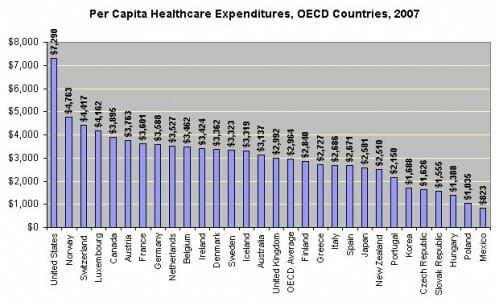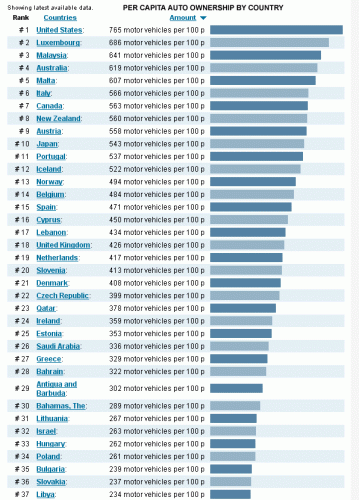I couldn't really get up enough energy to post about the whole Van Jones kerfuffle. Apparently, as one of Obama's 129 czars, this guy whose job it is to redistribute billions of dollars from one group of individuals to another and issue diktats to be followed by private citizens and businesses, is *gasp* a communist. Well, no sh*t. All of these various czars have communist roles so why is it surprising Obama might have picked a communist to hold one of them. The only surprise was that Van Jones was dumb enough to admit it in print rather than hiding it in leftish double-speak like most of the rest of the administration.
Anyway, all that aside, you gotta love the NY Post, which has no problem dropping any pretense of statesmanship and is perfectly willing to skewer its cross town rival. This editorial is pretty dang funny. An excerpt:
Newspaper of record? The Times isn't so much a newspaper as a clique of high school girls sending IMs to like-minded friends about their feuds and faves and raves and rants. OMFG you guys! It's no more objective than Beck is....
The Times continues to treat communism as a cute campus peccadillo like pot smoking or nude streaking. A Times think piece (Sept. 9) worried that Jones' fall was "swift and personal." Being a communist is personal but being the pregnant teen daughter of a vice presidential candidate is public business?
In a quasi-related post, Virginia Postrel says the Washington Post lost $1.10 per copy of their newspaper last quarter. Wow!
I have to disagree with Ed Driscoll, though. He like many conservatives argues that this economic problem of newspapers is somehow because the Times has dropped its objectivity. I am not sure anyone has evidence that is true. One could make, I think, an equally strong case that the Times should be less objective and go openly partisan. After all, this notion of politically neutral newspapers is a pretty recent phenomenon in the US.
I actually think the problem with newspapers like the Washington Post is the "Washington" part. Local business models dominated for decades in fields where technology made national distribution difficult or where technology did not allow for anything but a very local economy of scale. Newspapers, delivery of television programming, auto sales, beverage bottling and distribution, book selling, etc. were all mainly local businesses. But you can see with this list that technology is changing everything. TV can now be delivered via sattelite and does not require local re-distribution via line of sight broadcast towers or cable systems. Amazon dominated book selling via the Internet. Many of these businesses (e.g. liquor, auto dealers, TV broadcasting) would have de-localized faster if it had not been for politicians in the pocket of a few powerful companies passing laws to lock in outdated business or technological models.
Newspapers are ripe for a restructuring. How can one support a great Science page or Book Review section or International Bureau on local circulation? How much effort do the NY Times, Washington Post, LA Times, SF Chronicle, etc. duplicate every day? People tell me, "that's what the wire services are for." Bah. The AP is 160 years old! It is a pre-Civil War solution to this problem. Can it really be that technology and changing markets have not facilitated a better solution?
The future is almost certainly a number of national papers (ala the WSJ and USA Today) printed locally with perhaps local offices to provide some local customization or special local section. Paradoxically, such a massive consolidation from hundreds of local papers to a few national papers would actually increase competition. While we might get a few less stories about cats being saved from trees in the local paper, we could well end up not with one paper selection (as we have today in most cities) but five or six different papers to choose from (just look at Britain). Some of these papers might choose to sell political neutrality while some might compete on political affiliation.
If I were running the Washington Post, I would think very seriously about creating a national news offering, a USA Today with substance. If you offered me a Washington Post re-branded as a national paper, with some strong side offerings like the NY Times Science section and a good local sports section and a local news section, I'd toss my Arizona Republic in a second. Its going to take some good thought as to how to weave together the national offering with locally customized content and to manage local vs. national advertising accounts, but with technology this is doable -- Clear Channel does something similar in radio.
I wonder, in fact, why no one has done this yet -- when you look at the circulation numbers, only the USA Today and WSJ, the two papers pursuing this path, are seeing growth. My only thought is that news is one of those businesses dominated by passionate people who are tied deeply, emotionally into the industry in a way that makes it impossible to envision or consider new models (aviation is another such business, in my opinion, and the US auto business is probably another). What we need is for the Post and a few other major papers to fail and then let some really bright, right people from outside the business come and shake it up. This is, by the way, one of the unsung benefits of bankruptcy, is that it takes assets out of the hands of the people who got the company in the mess to begin with -- a benefit we short-circuited when we spent billions of taxpayer dollars in the auto industry to keep GM and Chrysler assets out of new and potentially more innovative hands.



